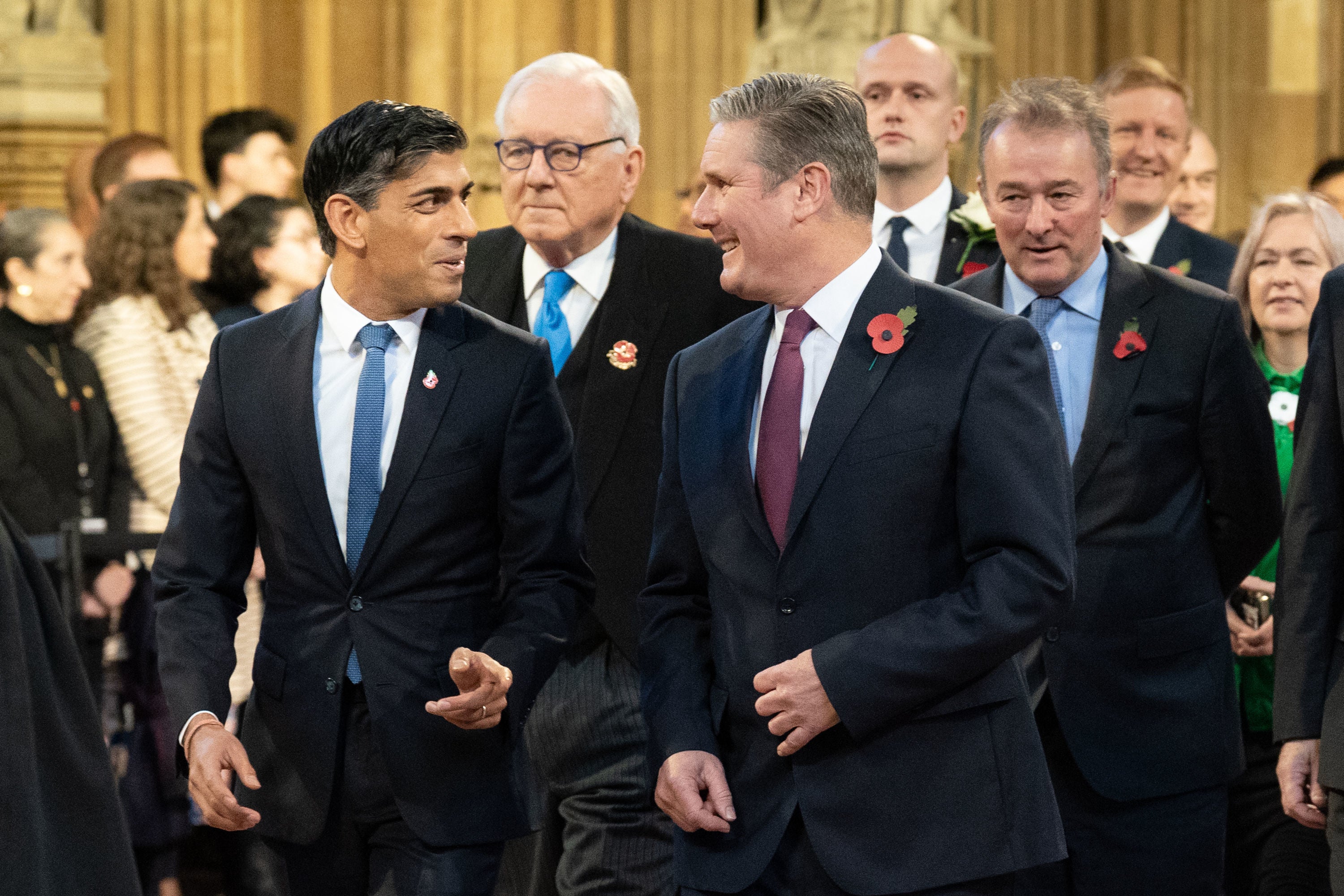So debt is falling, is it, Rishi? Whoops, there goes your reputation
Sunak’s claim is a bit of a shocker from a PM reputed to be a numbers man who always tells the truth (unlike you know who). John Rentoul does the maths on a surprising slip-up


Boris Johnson is no longer an MP because his fellow MPs concluded that he was guilty of deliberately misleading the House of Commons. He said things about gatherings in Downing Street that he knew, or should have known, were untrue.
That was one of the reasons for welcoming the arrival of Rishi Sunak as prime minister. He promised, as he reminded us yesterday in his introduction to the King’s Speech documents, “integrity, professionalism, accountability”, and, he claimed, “that’s what we have delivered”.
It was unfortunate, then, that he also broadcast a video yesterday setting out what he had achieved in his first year as prime minister and what he hoped, through the measures in the King’s Speech, to achieve in the future. He said: “Inflation is down, easing the burden of the cost of living, the economy is growing and debt is falling.”
Wait a moment. Debt is what? “It’s not accurate to say that debt is falling,” said the independent Institute for Fiscal Studies (IFS). The national debt is rising, however it is measured. It is rising in cash terms, but it is also rising by the most important measure, which is as a share of national income.
One of the government’s fiscal rules is that debt as a share of national income must be falling in five years’ time. Jeremy Hunt, the chancellor, set out plans in the Budget in March that just manage to hit this target in 2028. When I say “just”, the government’s plans have £6.5bn a year to spare. That may sound a lot, but it is trivial in the context of forecasts for what will happen in five years’ time.
What Sunak meant in his video is that “debt will be falling”. Indeed, the rule is that debt will always be falling in five years’ time, without ever necessarily actually falling, because the deadline is a five-year rolling target. The one thing we can be sure of, though, is that debt is not falling now.
It was a surprising mistake for Sunak to make. He is “the numbers man”, as he was once described by a floating voter in a focus group. He is across the detail. He is the former chancellor who challenged Chris Whitty and Patrick Vallance over the figures in a statistical annex to a report on coronavirus. And he is the politician of sea-green incorruptibility who eventually resigned in protest against Johnson’s reflex forgetfulness about the past misdemeanours of Chris Pincher, the deputy chief whip.
Some observers claim to detect signs in Sunak that he has given up on the next election already; that he is less attentive to the vote-by-vote struggle to remain in office; and that he is already paving the way to a post-prime-ministerial career with the tech bros of Silicon Valley. I don’t think this is right, and believe his friends when they say that he has no interest in making money (indeed, one of the reasons for his incorruptibility is that he has enough money already).
It seems more likely that Sunak made his error through haste in drafting, and a possible confusion between the present and future tenses, which reflects the extraordinary pressures of the job of prime minister – such that even someone of Sunak’s evident ability cannot always avoid mistakes.
But what an embarrassing mistake to make. The struggle to limit the national debt is central to the question that will dominate politics for the foreseeable future: how to restore the public finances to a sustainable footing.
It is the main question that Hunt will address in his autumn statement in two weeks’ time. The Office for Budget Responsibility has already supplied the chancellor with its forecasts, updated since March, but journalists offer wildly varying accounts of the Treasury’s room for manoeuvre in those figures. The best guess would be that tax revenues are higher than expected, but that the costs of interest payments on debt are also predicted to be higher than expected for years to come.
The net effect is probably to wipe out that £6.5bn-a-year margin for meeting the fiscal rules in five years’ time, which means two things. One is that there will be no early tax cuts in the autumn statement. The other is that Hunt’s spending plans for after the election – already described by the IFS as unconvincing – will become even harder to believe.
Whether or not Sunak (and Hunt) have already given up hope of winning the election, which is still probably at least a year away, nearly everyone else seems to have decided that it is already all over bar the counting of the votes. In which case, the ever-rising national debt will be Keir Starmer and Rachel Reeves’s problem.
The depth of the crisis of the public finances may be so severe that, as one former shadow cabinet minister said to me today, “the next Labour government may not last for the full five years”. At least some people in the Labour Party realise how bad things are.






Join our commenting forum
Join thought-provoking conversations, follow other Independent readers and see their replies
Comments